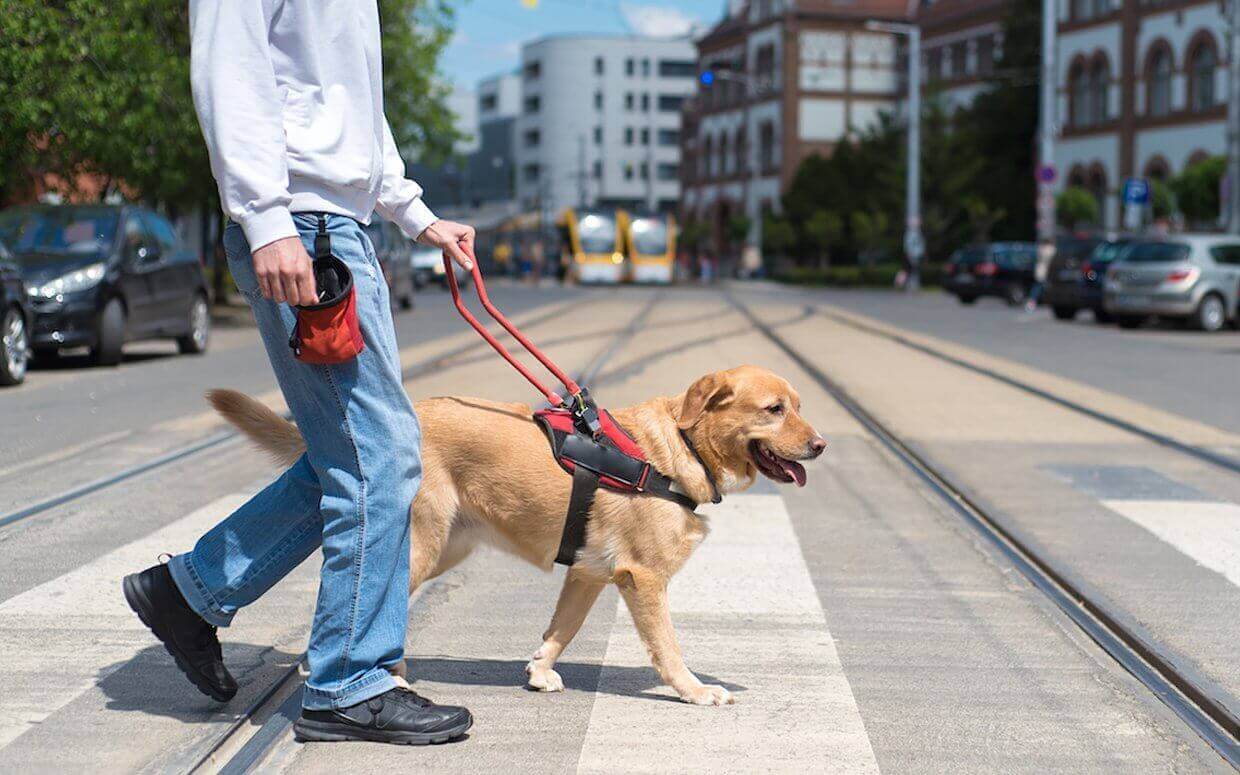 For many people, service dogs are more than just pets – they are essential companions that provide assistance and support in daily life. Whether it’s guiding individuals with visual impairments, alerting those with hearing loss, or providing emotional support to individuals with mental health challenges, service dogs play a crucial role in enhancing the quality of life for their handlers. However, the cost of acquiring and training a service dog can be a significant consideration for those in need. In this blog post, we’ll explore the factors that contribute to the cost of service dogs, shed light on the expenses involved, and discuss potential options for obtaining a service dog.
For many people, service dogs are more than just pets – they are essential companions that provide assistance and support in daily life. Whether it’s guiding individuals with visual impairments, alerting those with hearing loss, or providing emotional support to individuals with mental health challenges, service dogs play a crucial role in enhancing the quality of life for their handlers. However, the cost of acquiring and training a service dog can be a significant consideration for those in need. In this blog post, we’ll explore the factors that contribute to the cost of service dogs, shed light on the expenses involved, and discuss potential options for obtaining a service dog.
The Cost of Acquiring a Service Dog
When it comes to acquiring a service dog, the expenses can vary widely. The cost of a service dog is influenced by several factors, including the dog’s breed, training, and the specific tasks it is trained to perform. Service dog organizations often invest substantial time, effort, and resources into selecting and training dogs to meet the needs of individuals with disabilities. As a result, the cost reflects the extensive training and care provided to these remarkable animals.
Factors Affecting the Cost
Aside from the initial purchase or adoption fee, the cost of a service dog includes various components. These may encompass veterinary care, specialized training, equipment such as vests and harnesses, and ongoing support for the dog’s well-being. Additionally, the expenses associated with accommodating the handler’s needs during the dog’s training and acclimation process should be taken into account. It’s important to recognize that the overall cost is not solely determined by the dog’s purchase price but also by the comprehensive care and training required to ensure the dog can effectively perform its designated tasks.
Options for Obtaining a Service Dog
Given the substantial cost of acquiring a service dog, it’s crucial for individuals in need to explore available options. Some may choose to work with reputable service dog organizations that provide fully trained dogs to qualified applicants. These organizations often have established processes for assessing applicants’ needs and matching them with suitable service dogs. Additionally, some individuals opt to train their own service dogs with the guidance of professional trainers or through specialized programs. This approach may offer more flexibility in terms of choosing a dog and tailoring its training to specific requirements.
Financial Assistance and Support
Recognizing the financial implications of obtaining a service dog, various sources of financial assistance and support are available to individuals seeking these remarkable companions. Certain nonprofit organizations, community foundations, and government agencies offer grants, scholarships, or subsidies to help cover the expenses associated with acquiring and training a service dog. Additionally, crowdfunding platforms and fundraising initiatives have been successful in enabling individuals to garner community support for their pursuit of a service dog.
While the cost of service dogs can present a significant financial investment, the invaluable support and assistance they provide to individuals with disabilities are immeasurable. Understanding the factors influencing the cost and exploring the available options for obtaining a service dog are essential steps for those considering this path. As the demand for service dogs continues to grow, it’s important to recognize the impact these extraordinary animals have on the lives of their handlers and the meaningful role they play in fostering independence and well-being.
[/fusion_text]



